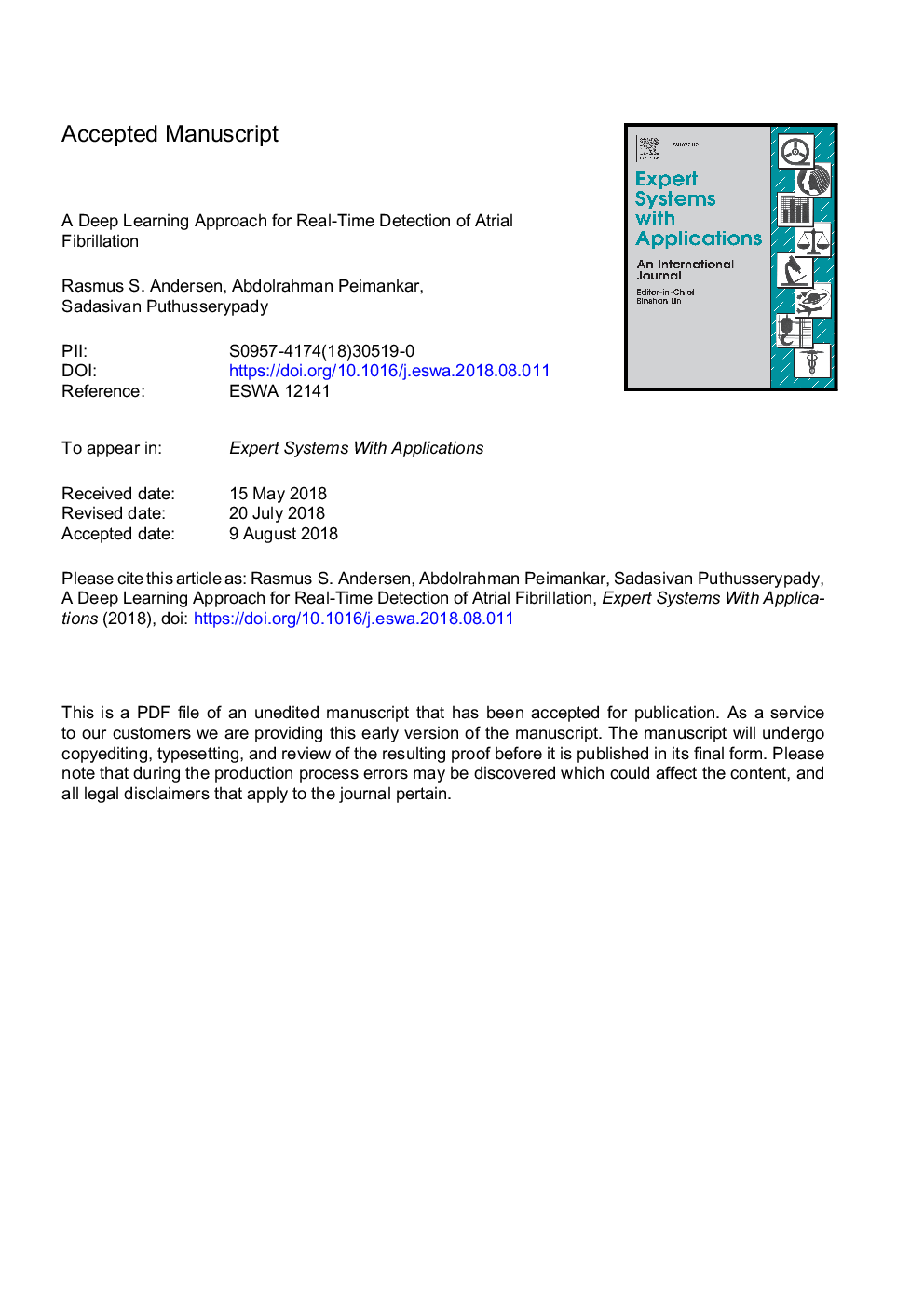| Article ID | Journal | Published Year | Pages | File Type |
|---|---|---|---|---|
| 11002293 | Expert Systems with Applications | 2019 | 24 Pages |
Abstract
Goal: To develop a robust and real-time approach for automatic detection of atrial fibrillation (AF) in long-term electrocardiogram (ECG) recordings using deep learning (DL). Method: An end-to-end model combining the Convolutional- and Recurrent-Neural Networks (CNN and RNN) was proposed to extract high level features from segments of RR intervals (RRIs) in order to classify them as AF or normal sinus rhythm (NSR). Results: The model was trained and validated on three different databases including a total of 89 subjects. It achieved a sensitivity and specificity of 98.98% and 96.95%, respectively, validated through a 5-fold cross-validation. Additionally, the proposed model was found to be computationally efficient and it was capable of analyzing 24Â h of ECG recordings in less than one second. The proposed algorithm was also tested on the unseen datasets to examine its robustness in detecting AF for new recordings which resulted in 98.96% and 86.04% for specificity and sensitivity, respectively. Conclusion: Compared to the state-of-the-art models evaluated on standard benchmark ECG datasets, the proposed model produced better performance in detecting AF. Additionally, since the model learns features directly from the data, it avoids the need for clever/cumbersome feature engineering.
Keywords
Related Topics
Physical Sciences and Engineering
Computer Science
Artificial Intelligence
Authors
Rasmus S. Andersen, Abdolrahman Peimankar, Sadasivan Puthusserypady,
